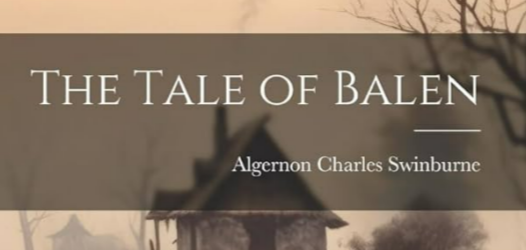Chapter VI-The tale of Balen
byChapter VI – The tale of Balen unfolds during a season when the golden leaves fall not just from the trees, but from the pages of Balen’s fate as well. The warmth of autumn belies the chill that follows a knight who carries the burden of prophecy and blood. With Merlin’s grim foresight lingering in his thoughts, Balen quietly departs the court not in shame but with solemn purpose, leaving behind the praise of a king who unknowingly watches his finest warrior walk into a storm no sword could stop.
During this journey, Balen stumbles upon a knight whose spirit is hollowed out by grief, the echo of loss carried in every word he utters. At Arthur’s behest, Balen accepts the burden of understanding this man’s sorrow, seeking meaning in his suffering rather than avoiding it. What he uncovers is more than pain—it is a tale twisted by betrayal, bound by blood, and steeped in the silence of unsatisfied vengeance, with Garlon’s name uttered like a curse.
The quest intensifies as Balen follows these clues to a castle whose walls seem to breathe anguish, where beauty cloaks a dreadful enchantment. Within its halls lives a legend: that peace may only return if innocence is offered to the darkness that dwells there. The knight learns that no armor protects against such wicked fate, and no sword can cut through curses cast long before his arrival.
Compelled by duty, Balen continues deeper into the castle’s shadows, where a lavish banquet conceals a final confrontation. Garlon, hidden in plain sight, is struck down by Balen in a surge of justice, but the triumph is short-lived. For in this act, sacred boundaries are crossed, and vengeance awakens more than a personal enemy—it summons a divine fury from King Pellam, guardian of relics too holy to bleed for vengeance.
The very foundations of the castle are shattered in the wrathful clash that follows. Walls crumble, pillars fall, and the air is filled with fire and screams as divine retribution consumes the stronghold. Amid the wreckage, Balen and Pellam lie senseless, broken not just in body but in spirit, their lives suspended between ruin and reawakening.
Balen stirs days later, his strength slowly returning thanks to Merlin’s intervention, but the damage cannot be undone. His trusted lady companion, who followed him loyally through storm and silence, has perished, her life claimed not in battle but by the chaos his own hand unleashed. Grief takes root again in Balen’s heart, deepening the cracks of guilt and loss already etched by fate.
The cursed sword that delivered vengeance has become a symbol of disgrace, and whispers of sacrilege follow Balen wherever he rides. Knights begin to question his motives, and even those once allied with him hesitate at his presence, unsure if they face a noble soul or an agent of sorrow. Each encounter becomes a trial not of skill, but of reputation—and Balen, once the lion of Arthur’s court, finds himself more hunted than hailed.
As he travels, the landscape reflects his turmoil: rivers run murky, forests seem to watch, and even friendly faces wear doubt. Temples once open to knights like him are closed in caution, and Balen senses a slow unraveling of all he once stood for. The world has not turned against him out of malice, but out of fear—fear of a knight marked by deeds too great and a fate too dark to embrace.
Despite the shadows gathering behind him, Balen’s purpose does not waver. He is not led by glory anymore but by a quiet need to restore balance, to redeem not only his name but the lives touched by his blade. Each day’s journey becomes a walk through memory and consequence, reminding him that knighthood is not forged only in valor but also in atonement.
Within Arthurian lore, Balen’s story represents a turning point—a moment where the ideals of chivalry meet the brutal consequences of human error. This tale stands as a cautionary echo through centuries, reminding readers that good intentions may still cast long shadows when wisdom is lost to wrath. In Balen’s journey, myth becomes mirror, showing how power, no matter how noble, must bow to conscience or risk burning the world it was meant to defend.
What elevates this chapter is its nuanced portrayal of legacy—how a single action, even when righteous, may change the course of a life and the judgment of history. Balen, once a symbol of strength, becomes a vessel for reflection, his tragedy meant to stir the hearts of those who walk the path of righteousness. His fall does not diminish his worth but instead deepens the lesson: true honor is not in never failing, but in bearing the burden of one’s failures with dignity.

